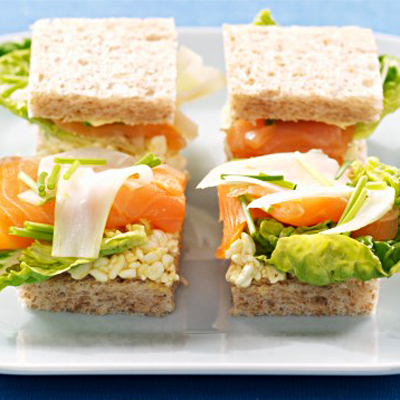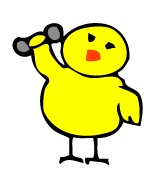 Well I guess it's time I give an update on the results from my sleep study. This follow-up appointment was so much different than any follow-up I've been to before. I went in there and the nurse practitioner went through my different sleep cycles and brain waves and limb movements... which all looked like the picture you see on the left. Those lines signify all the different hook-ups I talked about in the previous post.
Well I guess it's time I give an update on the results from my sleep study. This follow-up appointment was so much different than any follow-up I've been to before. I went in there and the nurse practitioner went through my different sleep cycles and brain waves and limb movements... which all looked like the picture you see on the left. Those lines signify all the different hook-ups I talked about in the previous post.Sunday, February 28, 2010
Update on the Sleep Clinic & Recommendations
 Well I guess it's time I give an update on the results from my sleep study. This follow-up appointment was so much different than any follow-up I've been to before. I went in there and the nurse practitioner went through my different sleep cycles and brain waves and limb movements... which all looked like the picture you see on the left. Those lines signify all the different hook-ups I talked about in the previous post.
Well I guess it's time I give an update on the results from my sleep study. This follow-up appointment was so much different than any follow-up I've been to before. I went in there and the nurse practitioner went through my different sleep cycles and brain waves and limb movements... which all looked like the picture you see on the left. Those lines signify all the different hook-ups I talked about in the previous post.Sunday, February 14, 2010
Why Sleep is Important to Your Health... and My Experience at a Sleep Clinic
 Ok, so obviously there's a crazy picture of me with a bunch of wires hooked up to the right from when I recently went to a sleep clinic and got a Polysomnogram, but I'll get back to that...
Ok, so obviously there's a crazy picture of me with a bunch of wires hooked up to the right from when I recently went to a sleep clinic and got a Polysomnogram, but I'll get back to that...Sunday, February 7, 2010
NuVal - Overall Nutritional Quality Index (ONQI)
 So there's this thing called NuVal that is a pretty complex nutritional scoring system which has started to trickle into supermarkets and seems like it's aimed to be available at every supermarket in the country, eventually. The NuVal system was created by a team of independent nutrition, public health, and medical experts and scores food on a 1-100 scale (100 being healthiest) to try and help people learn how to eat healthier. This score will be located directly on the shelf tag to be easily viewable.
So there's this thing called NuVal that is a pretty complex nutritional scoring system which has started to trickle into supermarkets and seems like it's aimed to be available at every supermarket in the country, eventually. The NuVal system was created by a team of independent nutrition, public health, and medical experts and scores food on a 1-100 scale (100 being healthiest) to try and help people learn how to eat healthier. This score will be located directly on the shelf tag to be easily viewable. Sunday, January 31, 2010
The Details Behind Small, Frequent Meals
 Ok so most likely you've already heard that eating small, frequent meals throughout the day is good for you and will help you with your weight loss goals...but you may still be wondering, WHY?
Ok so most likely you've already heard that eating small, frequent meals throughout the day is good for you and will help you with your weight loss goals...but you may still be wondering, WHY? - maintain metabolic rate
- lower body fat
- lower body weight while eating more calories
- better glucose tolerance and lower insulin response - this makes it less likely that fat will be produced from the food you eat
- lower stress hormone production
- maintain muscle mass easier
- improve physical performance
- poor maintenance of carbohydrate storage
- problems maintaining lean muscle mass
- lower metabolic rate
- harder time meeting nutritional needs
- increased risk of injury
Wednesday, January 20, 2010
The Truth About Vitamins
 We all know that vitamins are those things we're supposed to get from eating healthy and having enough fruits, vegetables, etc, and if we aren't perfect, we can supplement some of our poor eating habits with a multi-vitamin, right?
We all know that vitamins are those things we're supposed to get from eating healthy and having enough fruits, vegetables, etc, and if we aren't perfect, we can supplement some of our poor eating habits with a multi-vitamin, right? - 75-90 mg/day
- Functions: antioxidant, collagen formation, iron absorption
- Deficiency: bleeding gums, fatigue, muscle pain, easy bruising, depression, sudden death
- Food Sources: vegetables (particularly high in citrus fruits and cherries)
- 700-900 mg/day
- Functions: vision, growth, immune function, healthy skin
- Deficiency: night blindness, eye disease, unhealthy skin, susceptibility to infections
- Toxicity: headache, vomiting, hair loss, liver damage, death
- Food Sources: fish liver oils, butter, milk fortified w/ vitamin A + D
- ~5 mg/day - hard to establish because variations in sun exposure
- Functions: calcium absorption, mineralization of bone
- Deficiency: osteomalacia, poor bone mineralization
- Toxicity: renal damage, cardiovascular damage - is the most toxic of all vitamins
- Food Sources: fish liver oils, milk fortified w/ vitamin A+D, skin synthesis w exposure to light
- 1000 mg/day
- Functions: structure of bones and teeth, blood coagulation, nerve impulse transmission
- Deficiency: reduced bone density, osteoporosis, stress fractures
- Food Sources: milk and other dairy products, dark green leafy vegetables
- 700 mg/day
- Functions: involved in oxygen transfer to cells, in numerous oxidative enzymes
- Deficiency: microcytic anemia, leading to weakness, loss of energy, easy fatigue (most common mineral deficiency)
- Food Sources: meats, poultry, fish, egg yolk, dark green vegetables
Thursday, December 31, 2009
Gym closed New Years Day?...and you need workout ideas?

- 15 jump squats (go into a squat, jump up and bring your hands up. When you land, let your legs give so you go back into a squat - kind of like a frog. This is something called a plyometrics move (explosive movement). If you need something less intense, keep it to just squats without the jumping).
- 60 seconds of jumping jacks
- 15 alternating jump lunges (similar to the squats, but done as a lunge. Go into a lunge position, jump up, switch your feet, and land in the opposite lunge. This is another plyometrics move, so if you need a less intense version, keep it to alternating lunges without the jump).
- 60 seconds of jumping rope (you can fake it if you don't have a rope)
- 60 seconds of high knees (kind of like running but pull your knees up to your chest)
- 15 side kicks per side (pull your knee up first, then kick out to the side)
- 60 seconds of mountain climbers (hands on floor, alternate pulling your legs up to your chest).
- 60 seconds of jumping jacks
- 60 seconds of running butt kicks (like running, but kick your butt)
- 15 burpees (start standing, put your hands on the ground, jump your legs back so your feet are on the floor and you're kind of in a plank position, jump your legs back to where your hands are, stand up... that's 1. If this is too much, try the mountain climbers again.)
- 15 push-ups (or as many as you can do. If you need to, you can do these on your knees)
- 60 seconds of jumping rope
- 60 seconds of bicycle crunches (on your back, hands supporting head, pull opposite elbow to knee, alternate)
- 60 seconds of jumping rope or jumping jacks
- 60 seconds of a plank (elbows on ground, feet behind on ground, body straight.
Saturday, December 26, 2009
Moisture Wicking Performance Clothing - Still stinks after washing??
 Ok, so strange blog title... I know. But if you own workout clothes that are made out of that performance moisture wicking material stuff, and you sweat, you know what I'm talking about...or not.
Ok, so strange blog title... I know. But if you own workout clothes that are made out of that performance moisture wicking material stuff, and you sweat, you know what I'm talking about...or not.
This blog was originally for my brother because he was wondering why his Nike Dry Fit clothes still smelled like a dirty sock after washing, but then I thought back to the numerous times that my boyfriend told me my performance clothing smelled like something died (after it had been washed), and wouldn't come near me until I took it off. So, it's for both my brother and I, and for everyone out there who wants to smell pretty for the people around them. Not to mention, you don't want to be that person at the gym that STINKS and no one will step on the cardio equipment within a 3 foot radius of them.
Anyway, like a good sister, girlfriend, whatever, I researched this topic online for over an hour and wrote down all of the ideas I found, and it seems that half of the United States stinks like sweat as well...haha. Now originally I was just searching about Nike Dry Fit, but it seems like people have issues with any moisture wicking performance material...which is probably the reason all of my free performance shirts from races I've run in stink too. Ok, so see below for solutions I found at about 20 different website forums on this topic, and don't yell at me if they don't work because I haven't tested any of them yet :)...
Pre-soak with detergent, antibacterial hand soap, dish detrgent, an ammonia-water mix, or a vinegar-water mix in sink for a couple hours, swish around, then wring out and throw in w/ rest of laundry.
Performance fabric detergents or phosphate free tech soap that can be found at sporting good stores such as Dicks or EMS (Win SportWash, Penguin SportWash,etc). Also brought up was Method brand laundry detergent which is found anywhere like your local grocery store or Target but is not specifically made for performance clothing.
Things to add into the wash (only 1 at a time):
1/4 cup baking soda
A scoop of Oxy Clean
Borax washing powder
1 cup of white vinegar
Put your clothing in the freezer for a while; it kills bacteria.
Spray with Febreeze.
Puckskins brand shirts apparently don't hold the smell but are hard to find in the US. They can be found in Canada.
Oh, and a couple other little tid bits for keeping your moisture wicking performance clothing new as long as possible (what I have been scewing up on apparently): DON'T use fabric softners because they clog the wicking pores in the fabric, and you can put in dryer on low heat, but DON'T use dryer sheets.
Hopefully after reading this, less of the country will smell like sweat (especially my brother...and I) :)...let me know what works out!



